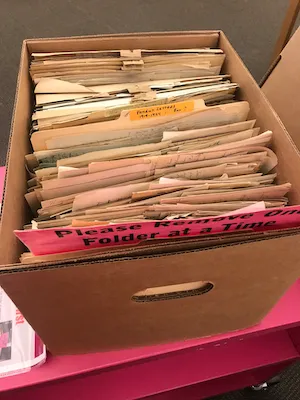Letters Never Sent: Lydia B. Angier Writing from Rochester State Hospital

I am a 2022 and 2024 Minnesota Historical Society Legacy Research Fellow. My project concerns letters written in the 1890s by a patient at Rochester State Hospital. Rochester State Hospital provided treatment for patients experiencing mental health difficulties.
I first found these letters in 2005, transcribed a half dozen, and then moved onto other projects. In my storytelling and essays I’ve written previously about my own mental health related hospitalizations and mental health treatment, and also through interviews and archival research worked to uncover more information about long dead family members who experienced hospitalization for mental health reasons. In presenting this work to the public I’ve had many conversations where people want to talk about the issues raised by my work. Sometimes people suggest that mental health treatment is primarily a form of social control, they’ll tell me they had a great aunt who got sent to the state hospital because of her husband (in these stories no one says why, but frequently the reason given is the person’s spouse), or note that treatment is so much better than it used to be.
In her letters Lydia Angier writes to a relative named Frank, to the hospital superintendant, speaks of rich friends, of her disinterest in religion, complains that a hospital employee grabbed her by the shoulder, speaks of legislation relevant to state hospitals, and mentions many individuals by name. She gripes, and wheedles, mentions she’s not sure her letters have actually been sent, but suspects a few get through.
The support from the Minnesota Historical Society in the form of this fellowship has allowed me time to work with a variety of documents from the 1890s, and has led to mutliple surprising findings that I look forward to sharing soon.